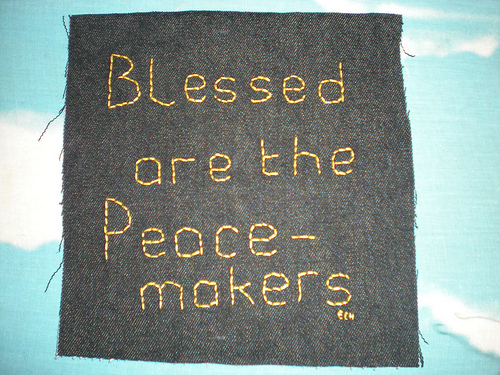 One of the major problems in American Christian thought today is forced dichotomies where they do not actually exist. One of the most prominent areas where this is demonstrated is in the way personal responsibility and systemic sin are treated as mutually exclusive. Nowhere is this most contentious than in debates concerning race in America today.
One of the major problems in American Christian thought today is forced dichotomies where they do not actually exist. One of the most prominent areas where this is demonstrated is in the way personal responsibility and systemic sin are treated as mutually exclusive. Nowhere is this most contentious than in debates concerning race in America today.
On the one hand, many on the left attribute most things in society to systemic influences. If only we could fix our systems, surely most of the evil of society would be solved, they think. The key to utopia is systemic reform, they seek to convince us. People are mostly pretty decent and, if given a chance, will choose the good.
On the other hand, conservatives refuse to consider systemic influences and exclude the reality of systemic sin. Instead, they insist that we all face pressures in life; we all have the unhindered ability for self-determination. We all have the free will to make our own choices and could all come to success in life if only we set our mind to it. People who remain stuck in poverty are there due to their own lack of initiative. If they could only fix their lack of initiative, they could at last become productive American citizens.
I would like to argue that both sides have only half the picture. A more realistic picture comes from putting these two puzzle pieces together.
Liberals: Better Systems Will Not Create Utopia
To the left, I want to say this: You cannot use systemic problems to entirely explain the stubborn realities of poverty or evil in society. You cannot entirely absolve those who live within deeply flawed, biased institutions and say that they are, therefore, not responsible for their decisions. It’s not that simple or easy. Life is multifactored.
For an example, let me step outside our American context for a moment. One of the genres of television and fiction that I find most fascinating is Scandinavian noir (for example, Henning Mankell’s Wallander or the Scandinavian television series The Bridge). Within this genre, we see the Scandinavian socialist countries that are frequently portrayed as modern utopias in which everyone is happy and prosperous. And yet these Scandinavian writers–liberals who write precisely because they wish to call attention to important social issues–pointing out the dark underbelly within these supposedly utopian cultures. In 2012, Jace Lacob noted in The Daily Beast:
There is an inherent darkness to the Nordic Noir shows, and a sense that the scales are never balanced or endings neatly tied up. Ironically, Denmark was named the country with the highest levels of happiness by the United Nations’s first World Happiness Report earlier this year. For a country that would seem to be so well adjusted, it’s intriguing that they would be producing some of the most disturbing, challenging, and dark fare on global television.
Similarly, in 2010, The Economist noted:
The countries that the Nordic writers call home are prosperous and organised, a “soft society” according to [Nordic noir author Jo] Nesbo. But the protection offered by a cradle-to-grave welfare system hides a dark underside. As Mary Evans points out in her recent study, “The Imagination of Evil”, the best Scandinavian fiction mines the seam that connects the insiders—the rich and powerful—and the outsiders, represented by the poor, the exploited and the vulnerable. [Stieg] Larsson is a master at depicting the relationship between business, social hypocrisy and criminal behaviour, and his heroes do not want to be rescued through any form of conventional state intervention.
Certainly, one may argue quite fairly that there are systemic issues that need to be dealt with at play in these countries as well. But I raise this example because even for those of us who wish the government to provide more services for its citizens, we need to remember that systems will not fully cure poverty or brokenness or evil. As Jesus said, “ You will always have the poor among you” (John 12:8 NIV). Somehow, we must live in a world where poverty is indeed always going to be present and yet simultaneously work to eliminate as much of it as possible.
Just because resurrection life cannot possibly creep into every nook and cranny until the new heavens and the new earth doesn’t mean we oughtn’t try to bring its light into every place we can. When we can do this, we provide tidbits, a foretaste of the feast to come. But we mustn’t become over-enamored with the idea that better institutions will entirely wipe out poverty, suffering, or evil. And we mustn’t eliminate personal challenge to individuals to do their best and to resist evil, no matter their context. Conservatives are correct on these points, and liberals need to be more attentive to them.
Now … on to some words for conservatives.












